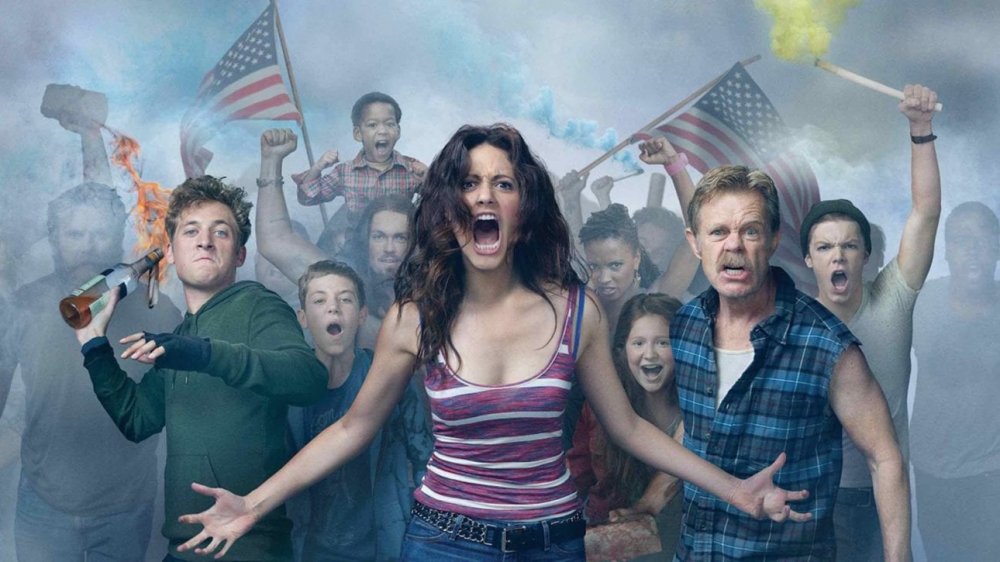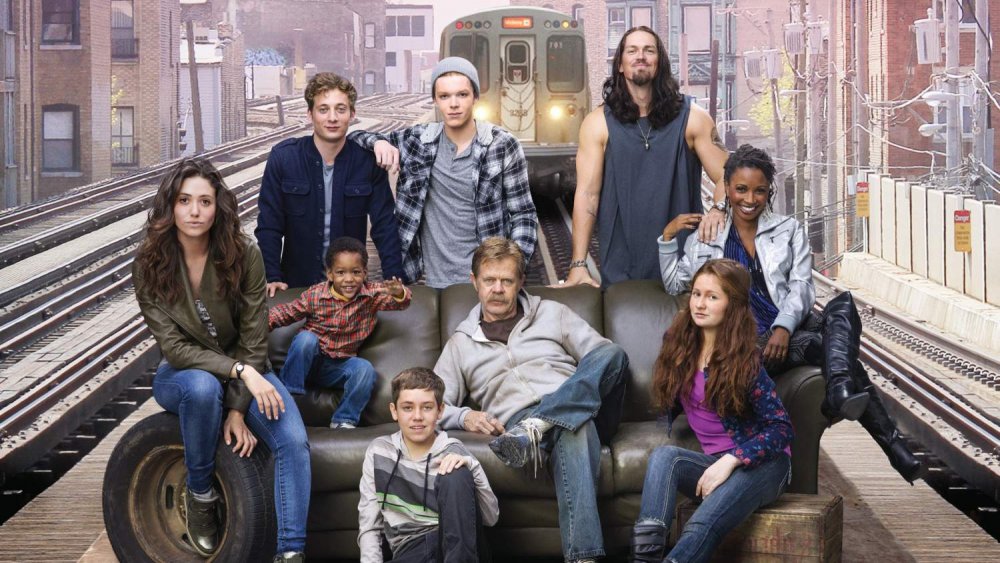Shameless Almost Took Place In A Very Different Setting
A wise person once said, "The end is important in all things." While the grand philosophical sentiments behind that statement can be applied to all facets of life, they remain particularly true of a once-beloved television series wrapping up a decade-plus run on the small screen. In the case of Showtime's long-running dysfunctional family dramedy Shameless, the stakes are rising as the series looks to close out its unexpectedly lengthy run after a lackluster tenth season, and without the estimable presence of its former star Emmy Rossum (who played Fiona Gallagher in seasons 1 thru 9).
After a months-long COVID-19-related delay, Shameless is indeed heading into production on its eleventh and final season, which means the South Side of Chicago is once again about to be bombarded by all manner of the Gallagher clan's physical, emotional, and sexual shenanigans.
That wasn't always the plan for this tale of a feisty, low-to-no-income family fighting tooth and nail (sometimes among themselves) for their slice of the so-called American dream. According to a New York Times interview, when series creator John Wells (ER, The West Wing) was trying to adapt Shameless for American audiences (it's based on a UK series), many producers wanted to make the setting a trailer park in the American South.
"When we first started pitching, everybody kept gravitating towards the South or putting it in a trailer park, and I kept saying, 'Well, no,'" says Wells. He wisely stuck to his guns in keeping the Gallaghers out of the trailer park, and eventually found the raucous crew a fitting home on the rapidly gentrifying outskirts of Chicago.
A move to Chicago's South Side proved vital for the success of Shameless
Comedy was always going to play a part in the Americanization of Shameless, of course. But it seems Wells was hellbent on preventing the Gallaghers from becoming merely the punchline of another trailer park farce. Wells further cemented his anti-trailer park stance in that New York Times piece, stating, "We have a comedic tradition of making fun of the people in those worlds. The reality is that these people aren't 'the other,' they're people who live four blocks down from you and two blocks over."
That sentiment rang true with Paul Abbott, the creator of the UK version of Shameless, who co-signed Wells' logic, noting a particular sort of poverty drives the series' narrative. "It's not My Name Is Earl or Roseanne. It's got a much graver level of poverty attached to it. It's not blue collar; it's no collar."
Abbott's poverty distinction proves as vital to Shameless' narrative as the series' location, and plays a key factor in exploring the series' broader themes, which explicitly confront the soul-crushing nature of generational poverty, the brutal effects of addiction, and the rampant gentrification of America's inner cities.
Those complex themes have indeed proven as essential to Shameless' success as any mere setting could. It's equally clear the series wouldn't have felt so damned timely or wickedly insightful had it unfolded in the confines of a trailer park with potentially cartoonish characters most viewers could never identify with. As it is, you still may not identify directly with the Gallagher's fragile existence on the South Side of society, but we'd wager you've got some neighbors just around the corner who do. And if you can't see their faces and struggles in the Gallaghers, you're not looking hard enough.

